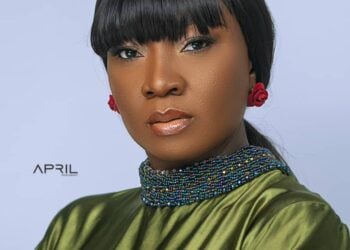“The Black skin is not a badge of shame, but rather a glorious symbol of national greatness!” – Marcus Garvey
Beauty, as they say, is in the eye of the beholder. But somewhere along the way, a persistent whisper transformed into a booming standard: “Fairer is finer.” From media to everyday conversation, this belief found deep roots, especially among African women. But where did this bias come from, and why has it struck so deeply?
Historically, women of color were misrepresented or relegated to supporting roles, often depicted as ‘mammies’ or caretakers. The media, too, reinforced this narrative, celebrating fair-skinned women as the standard of beauty, with darker-skinned women being underrepresented or stereotyped. But as times changed, women like Viola Davis,
Iman, Angela Bassett, Naomi Campbell, Alek Wek, and Lupita Nyong’o have not only redefined beauty on their own terms, but they’ve also shattered this limited standard of what black beauty represents. Black women of all shades have shown the world that beauty is not dependent on skin tone—it’s about grace, confidence, and being your authentic self.
So why do we, in our own communities, still hold onto this bias that “fairer is more beautiful”?
Most of us know someone, who is using skin-lightening products or toning products to maintain their skin tone in pursuit of this “ideal.”
The problem? The so-called “beauty” these products promise is as fleeting as a mirage. Fairer skin may seem to appear, but it often leaves behind a trail of discolored, sensitive, or damaged skin. Yet, despite knowing the risks, why are so many women still tempted? It all boils down to that whisper we’ve been hearing for ages, the one that says, “To be beautiful, you need to be fair.”
Interestingly, South Sudanese women, known for their stunningly rich, dark skin, are often ranked amongst the most attractive black women in the world, especially by Caucasians. Most of the supermodels that have been discovered in the past twenty years plus, have been dark-skinned beauties who were not considered beautiful in their own country. When Alek Wek was scouted as a supermodel, she totally changed the perception of how darker-skinned women were viewed and its beauty standards.
This is a reminder that beauty is not defined by fairness; it’s defined by confidence, care, loving the skin you are in, and having a sense of identity. It’s a clear message that dark skin isn’t just beautiful—it’s extraordinary!
Let’s address the obvious: bleaching isn’t beautification. It’s a temporary illusion. Beyond the illusion, many have faced consequences like thinning skin, discoloration, and health concerns like skin cancer—all for a beauty standard that does more harm than good. Your skin doesn’t need drastic changes; it needs care and respect. Dark girls, it’s time to raise that flag and glow naturally. There are safe, natural skincare products to bring out your skin’s true radiance without the damaging effects of bleaching.
There’s an interesting twist here—fair-skinned women, ironically, get a raw deal in this equation too. Often, compliments directed at them are centered around their fairness, as if that’s their only defining feature. Phrases like “She’s fine because she’s fair” get tossed around without a second thought. It’s as if society won’t let them be beautiful for who they are beyond their complexion. They’re often reduced to this single feature when they are so much more than that.
Our skin is a treasure, a gift from nature, and it deserves the best. Fruits like papaya, avocado, and citrus, among others, offer natural nutrients that promote healthy skin without harm. Shea butter and coconut oil are both excellent natural moisturizers, especially for Black skin, which can be more prone to dryness due to a higher number of low-sebum-producing sweat glands.
Shea butter is rich in fatty acids and vitamins A, E, and F, making it deeply hydrating and nourishing. It’s especially useful for treating dry patches and skin conditions like eczema.
Coconut oil provides a protective layer that helps to retain moisture in the skin, making it especially beneficial for dry areas. Coconut oil contains essential fatty acids that support skin health, and has natural antimicrobial properties that can help prevent skin infections.
Combining shea butter and coconut oil can create a balanced, rich moisturizer that locks in hydration and adds elasticity. Mixing a small amount of coconut oil with shea butter can make it easier to spread and may also add a pleasant scent.
Choosing skincare products with natural ingredients can ensure that your skin glows, not because it’s fair, but because it’s healthy. So next time you’re shopping for skincare, look for products that promise radiance, not fairness. It’s about the glow!
What’s the takeaway here? The belief that “fairer is more beautiful ” may have been passed down from generations, but it’s time we break that cycle.
Black is beautiful; and Black doesn’t crack. Let’s honor the natural beauty that shines when we take care of our skin, just as it is. We’ve all got the tools to make our skin shine—no bleaching required. Embrace, protect, and celebrate your natural complexion. Let it be a point of pride, not a work in progress. So, to every woman reading, be proud of your skin tone—dark, fair, or in between—and let it radiate naturally!



